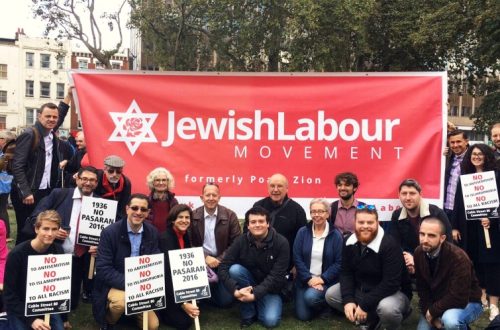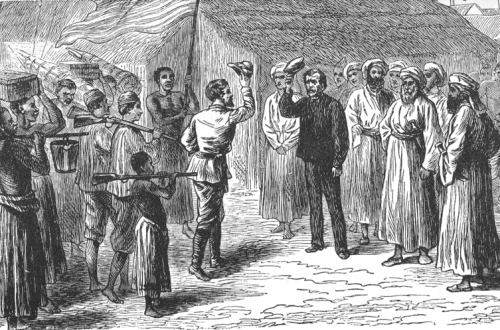This is a guest post by James Snell
Like some perverse retelling of Dickens’ A Christmas Carol, it might appear that Ed Miliband is being haunted by ghosts of Prime Ministers past, and one of them in particular. Off campaigning in Bristol, or so we are told, the Labour leader drafted in his former boss to add some vim to proceedings in Sedgefield.
As well he might. Tony Blair is the most successful Labour figure in recent history, with three general election victories atop his otherwise already impressive record; indeed, he could even go down in history as the last Labour leader ever to win a majority at a general election, never mind three of them. And his skills do not just extend to winning, as the impressive speech he delivered this morning demonstrates. (It is also important to note that, unlike Miliband, whose attempt to imitate Wordsworth’s ‘happy warrior’ betrays a seeming distaste for the platform and the podium, Blair appears to have a genuine relish for the campaign; some of it was on show this morning.)
Almost as if he remained at the head of the Labour Party, Blair’s speech at times appeared to take the form of a head of government addressing the press on an issue of the day. As it was, of course, what was really required of him was an endorsement; and it was soon delivered. Blair supports Miliband ‘one hundred percent’ – or so he said.
Bigger issues were afoot, however, and Blair’s strongest phrases were aimed at the two agents of nationalism whose actions are creating difficulties in the country at large. As Blair himself said: ‘[n]ationalism is a powerful sentiment. Let that genie out of the bottle and it’s a Herculean task to put it back.’
Which is very true, but Blair’s suggestions about how best to deal with this unpleasant and tribal political sentiment were not as acute as the above diagnosis. Hemmed in by the Labour party line, which has ruled out a referendum on our membership of the European Union, it was left to Blair to justify denying the British people a direct opportunity to decide a matter of grave importance.
He was right, of course, in stating that the Scottish campaign elicited a great outpouring of unpleasant sentiment. Nationalists made absurd statements about important issues – Scotland’s oil wealth was one example – and they have since been proven wrong by geopolitical reality; there was a stirring up of anti-English feeling at the same time, and that made the political climate around the referendum all the more tense and provincial. All of the above is true, and Blair was correct to mention it, but the fact remains that the Yes faction – with its utopianism and parochialism and attendant absurdity – was defeated in a fair and democratic vote at the end of a long, fascinating campaign. That is to say, nationalism may well have been unleashed, but it was restrained by the good sense of the Scottish people.
The correct and sane side won the day, and the same result can be expected in the case of any referendum on Europe. While it is certain that campaigning will be fraught, trusting the British people to make a sensible decision is the most reasonable course of action.
Unlike Scottish affairs, after all, the anti-European nationalists are already out in force; and Ukip and its ilk will only get stronger – and, it must be stated, nastier – if the referendum yet again disappears off the table in an anti-democratic parade of fine words. Defeating them will be harder, not easier, if the debate around their pet issue is allowed to fester away from mainstream attention.
If there is to be a referendum, however, those concerns could be addressed in a reasonable and moderate way by the entire electorate, not merely thrown around in the anterooms of power by the angry and the prejudiced. And during the campaign openly nationalist parties will be unable to keep the mask from slipping. Blair was right when he stated that ‘[n]ationalism as a political cause is almost always ugly and can never disguise its mean spirit’. Even if that sentence was intended only to garner applause, it remains prescient; the nastiness inherent in calls for Britain to turn its back on the world will be very much in evidence during a referendum campaign on our EU membership, and, as in Scotland, there will be a reaction against them.
Like Blair I value our continued membership of the EU. It is a profound economic resource and source of great geopolitical strength. Because of that it must be defended from the rhetorical attacks of political marauders like Nigel Farage, a man who wishes to prevent HIV sufferers who had the cosmological misfortune of being born abroad from using the NHS. But the best way of doing that is not to shut down the potential for democratic change, thereby affording endless ammunition to the naysayers and those who pose in the borrowed robes of anti-establishment politics. It is by beating them at their own game, so to speak.
Tony Blair is right: nationalism is ugly; but he is only half right. The best way to defeat it is not by removing an opportunity for truly democratic decision-making; it is by winning over the nation. And now it appears that there are no other options – only in a referendum can that be done.


